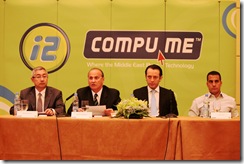Qtel has upgraded its HSPA network to offer mobile download speeds of up to 14.4 Mbps, and is already working on another round of upgrades which should see speeds as high as 21 Mbps available by August and 42 Mbps later in the year.
More than 50,000 people in Qatar currently use mobile broadband solutions, logging into the Qtel network using smartphones, laptops, gaming consoles and other Wi-Fi-enabled devices. The new speed enhancements will benefit all customers at no extra cost.
"We have a clear road-map in place that will see Qatar emerge as one of the best-connected nations not just in the region, but in the world. The enhancement of our mobile Broadband network sits alongside our plans for fibre-to-the-home and network upgrades that will ensure everybody can have the best Internet experience wherever they are in Qatar," stated Khalil Ibrahim Al-Emadi, executive director of networks at Qtel.
Alongside the network upgrade, Qtel is also offering its new 21 Mbps modem which follows the successful launch in April of its innovative My-Fi personal mobile hot spot, a pioneering device that enables people to create their own Internet access points from anywhere in Qatar. Up to five people can access mobile broadband over the My-Fi solution.
Earlier this week Saudi Arabia’s Mobily announced it had completed trials of its HSPA+ network with speeds of up to 42 Mbps, in preparation for rollout to major cities across the kingdom. This was the first major speed upgrade for Mobily since the launch of the region’s first HSPA network in the second half of 2009 with speeds of 21 Mbps.




